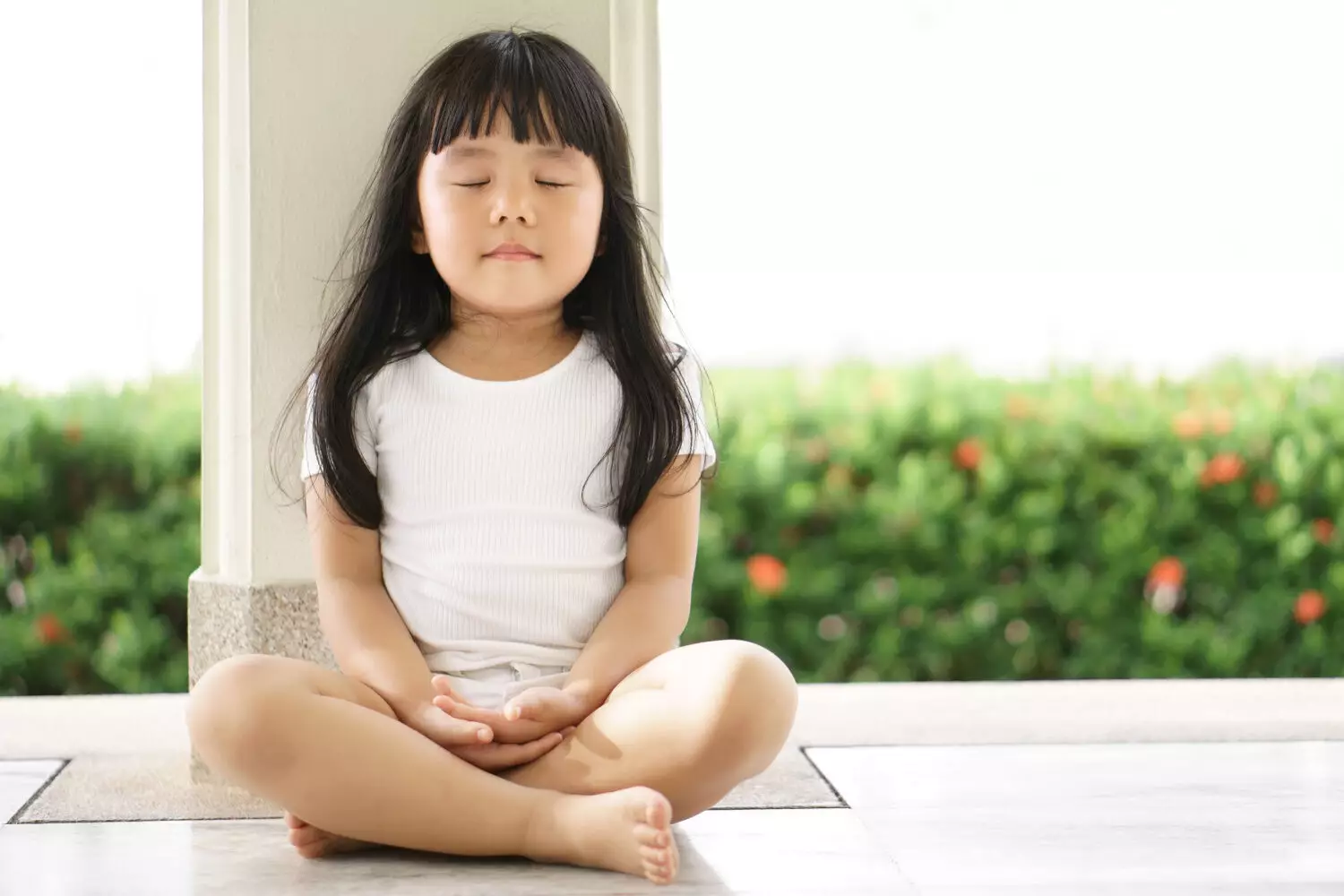
Snoring in Children: Is It a Matter of Concern by Dr. Srikanta J T
10 min readWritten by Editorial Team

“Doctor, my child snores while sleeping. I am a bit concerned.”
“I would like to know why my kid snores.”
“Is it serious?”
“When will my kid stop snoring?”
“I am worried if my baby can get sound sleep or not.”
“Will it impact his overall growth?”
All the above and many more queries are often deeply enrooted in the mind of parents who are concerned about the health and well-being of their children. But over here, we will emphasize only this very common and easily observable concern in children, i.e, snoring in children.
No doubt, the horrific snoring of your partner at night often becomes the cause of anger-fuelled discussions the next morning. But when the same snoring comes from the room of your darling children, it becomes a topic of concern on the breakfast table.

What is Snoring?
Snoring is the noise that comes from the mouth or nose while sleeping. It occurs when the normal flow of air is obstructed and the tissues surrounding the airway vibrate while sleeping. The causes and remedies of snoring vary with age.
Temporary Snoring:
Snoring is not the same every time. It varies based on its cause, frequency, duration, and impact. Temporary snoring is very common in children. Temporary snoring is when your kid snores two or three days of the week and does not show any other signs or symptoms of ill health. As a parent, you should not worry if this is the type of snoring pattern you have observed in your child.
What Causes Snoring in Children?
In general, snoring in child happens when the normal or the free flow of the air is obstructed while inhaling and exhaling, the tissues surrounding the airway vibrate and produce the snoring sound which is very much audible to the other person.
Although medically, multiple reasons have been identified for causing this noisy disturbance in kids. The below-mentioned reasons are most common for snoring in children:
- Adenoids or Tonsils: Situated on the back part of the throat, the tonsils and adenoids form an integral part of the body’s immune system. These tissues shield your child against viruses and bacteria when your kid breathes. But in this course of action, when tonsils and adenoids develop throat infection, then these parts grow in size or get swollen and they tend to obstruct the normal flow of air while inhaling and exhaling, thus causing snoring in children. When the swelling goes off, so does the snoring. It’s a temporary phase.
- Poor Air Quality: Anything wrong will have a wrong impact. And so does the quality of air which we regularly breathe in. Snoring in children is very much observant in kids who are counterattacked by secondhand smoke or Environmental Tobacco Smoke (ETS). Unhealthy air surrounding leads to upper respiratory problems in your kid, which thereafter becomes the reason for that loud sound from your little one.
- Allergies: Some kids are prone to seasonal allergies or other allergens like grass, dust, pollen, etc. Because of this allergic reaction, the nose and throat tissues get inflamed and result in a snoring child.
- Obesity: Obesity can be another reason for child snoring. Children with obesity have narrower airways, which is the underlying cause of snoring in children. This long duration leads to sleep apnea.
- Cold and Congestion: When your child is infected with a common cold or flu, the nose becomes stuffy and runny, because of which the kid needs to breathe through his or her mouth. At this time, as the normal breathing has got affected, the result is, snoring in children while sleeping.
- Asthma: Snoring is often considered a symptom of the onset of asthma in kids. Kids with asthma problems snore when their normal breathing passage is blocked due to this medical reason.
- Anatomic Characteristics: Anatomic characteristic, like joint nostrils, restricts the normal breathing from nose, and induces the person to breathe from the mouth, thus producing a snoring sound.
- OSA(Obstructive Sleep Apnea): Obstructive sleep apnea or OSA means that the airways of your child get temporarily blocked while sleeping, thus causing a shortage or failure of breath for a very short duration. Because of the pause in breathing, an alarm is sent to the mind of the kid, which either results in snores or waking up the kid for a second, before falling asleep again. This on and off sleep disorder affects the overall growth of the child.
What are the Symptoms of Snoring or Snoring Related Problems in Children?
Over here we would like to share the signs of snoring or related problems in kids based on daytime and night-time.
Daytime:
Suppose you missed observing the restless sleep of your child at night because of any reason, then you can check for the following daytime signs, which are a direct result of sleep apnea in kids:
- Children waking up lazily and not so fresh.
- If the child feels tired throughout the day and falls asleep easily in the car/bus or class.
- Children are inattentive in class and get irritated easily
Although these signs are also because of ADHD, as a parent, you need to have open eyes and ears at night, when your kid sleeps.
Night Time:
Observe the snores and roars of your child at night, when your kid is fast asleep. If any of the below-mentioned characteristics form a part of your kid’s night time, it means your child is suffering from a snoring problem:
- Walking or talking in sleep. Yes, kids do that when they are in deep sleep but are still not able to breathe properly.
- Restless sleep in kids: Few children keep moving or keep changing positions while asleep. This can be because of periodic limb movements in sleep, but one can also not overlook proper breathing during night sleep.
- Breathing through mouth while sleeping: Kids breathe through their mouths because of certain blockages in their nasal passages.
- Kid getting up at night because of his or her snoring sound.
- Observe the gap between two respective breaths in your child while he or she is fast asleep. Please check if your child chokes or gasps for air while sleeping. If all this happens, it means that the airway is getting blocked.
The loud snores from the nose or mouth of little ones are a matter of concern. So if your kid snores louder than his or her age, contact your doctor immediately.
Snoring in Children: Home Remedies
Once when you know that the cause of snoring in your kid’s case is not a severe one, you can try out any of the listed home remedies. However, it is always advisable to consult your doctor to make sure that the home remedies are suitable for your kid:
- Elevate or raise the head of your kid higher than usual while sleeping. Three to four inches of elevation is good enough. Please assure that your kid is aged above eighteen months when you opt for this home remedy. Take a pillow to elevate the head of your kid. The pillow should neither be too soft nor too hard. Remember, that your child should be at comfort.
- You can use nasal aspirators to relieve kids from any sort of congestion to reduce the congestion caused in the nasal passage because of the common cold and flu. You can also make use of a saline solution to clear the nasal passage. If still there is no relief, talk to your child’s pediatrician. Don’t experiment with any over-the-counter medicine to resolve the cold issues of your child.
- Get rid of any potential allergens in the vicinity of your child. Often pets or stuffed toys or fur of blankets and quilts are the cause of allergy in kids. Make sure to vacuum the room or surroundings of your kid, in his or her absence. Otherwise, dust and other air particles may trigger the allergy.
- The air quality of the surroundings in which your child stays for a longer period of the day should be purified. Make sure that your kid is not a passive smoker, i.e he or she should not inhale any tobacco smoke indirectly. You may make use of air purifiers which purify the air from any sort of dust or pollen or pollution.
- Make use of a humidifier in the room of your child. Maintaining a proper humidity level also assists in clearing the nasal passage. Rinse it daily.
- Ensure sleep hygiene: Wondering what is this sleep hygiene all about? Maintaining sleep hygiene means ensuring a proper sleeping habit and environment for your child. Some of the sleep hygiene measures include an appropriate amount of light exposure while sleeping, a well-planned and implemented sleep time, the amount of screen time before sleep, and also comfortable bedding.
- Eliminate dairy products: Try to avoid the use of dairy products like milk, cheese, curd, etc in the diet of your child for one or two weeks.
Another Child Snoring Solution:
Although home remedies are always the first choice of parents, when it comes to dealing with the treatment of their kids, there are situations when one needs to get in touch with expert doctors for the same. So let’s quickly have a recap of the pointers, which will direct you to visit the doctor, if needed.
When does Snoring Become a Matter of Concern?
However, if the snores of your child are more severe, with persistence and loud rumbling noise, then yes it’s a matter of concern. This is because when your little angel snores so loudly continuously, his or her sleep gets disturbed. Your child is not sleeping peacefully, which in a way also means that it will affect the growth of your child adversely.
Contact the Doctor, If:
- Your child snores for more than three nights a week.
- The child faces breathing issues while sleeping.
- You can see that your kid is inactive and lazy during the day hours.
- Your child complains of a morning headache.
- If the attention span or focus of a child is not good or deteriorating.
A close examination of the mouth, nose, and throat, helps the doctor to discover any blockage in the breathing passage of the child. And if the doctor finds any serious sleeping issues related to your child or other medical concerns like asthma, he may recommend undergoing further tests. The findings of the tests help the doctor to further work out the remedies and their respective pros.
Surgery:
Hey, don’t panic. It’s a small surgery for the removal of tonsils or adenoids in kids who face snoring problems because of severe obstructive sleep apnea. This surgery is medically termed ‘Adenotonsillectomy’. It is a permanent solution for snoring and a momentary pause in breathing while sleeping.
Use of Airway Pressure Devices:
If you as a parent have been advised by your doctor to make use of Continuous Positive Airway Pressure (CPAP) or Bilevel Positive Airway Pressure (BPAP), then this is what you have to do. CPAP or BPAP are small machines that very smoothly allow your child to blow air through a tube and mask. The tube and mask are either set on the nose of your child or nose and mouth. Now, once the child blows the air through the tube, these machines direct the air pressure back to the child’s throat, thus resulting in open airways. These machines are also used post the surgery of tonsils and adenoids to deal with sleeping disorders. Please ensure that the mask is properly fitted to the nose and mouth of the child. Take the help of a caregiver so that there are no hassles.

Use of Oral Appliances:
In very rare situations, the use of certain dental devices or mouthpieces is recommended by doctors to expand the nasal passage of the child. Clarity of the airway prevents snoring in children.

Medicines:
You might be wondering, why have oral medicines not been mentioned, even after such long information on medical grounds. Well, there are certain nasal steroids, such as fluticasone and budesonide, which provide ease to your child when the kid suffers from sleep apnea symptoms. However, it is never a good idea to take any such medicine without proper consultation.
When does Snoring Become an Alarming Sign? (OR) What are the Side Effects of a Child Snoring while Sleeping?
If snoring in children is the result of temporary causes like allergens or tonsils, it will heal with time, but when the underlying causes are grave like Obstructive Sleep Apnea (OSA) or Asthma, the issue needs little extra concern.
OSA results in a shortage of oxygen flow to the brain of a child while sleeping. This simply means that the brain development of the child does not take place in the manner it is supposed to. This affects the child’s physical activity, academics, overall behavior and triggers other issues like poor metabolism and high blood pressure. The overall growth quality of the child, therefore, gets poorly affected.
Now, even if your kid has not been detected with sleep apnea, but does suffer from regular snores, his or her nervous and cardiovascular system gets negatively affected. Few more side effects of snoring in children are:
- Poor body weight
- Bedwetting
- Bluish skin
- Lazy and sleepy daytimes
- Morning headache
- Poor concentration level
- The onset of ADHD or attention deficit hyperactivity disorder
Guide to Visit the Doctor for Child Snoring Solution:
This is a very helpful study, in case you are planning to visit your doctor to find a solution to your child’s snoring. This section will impart knowledge in three sections:
1st- How to prepare yourself for the visit to your doctor’s clinic.
2nd- What all questions you should ask your pediatrician.
3rd- What all questions your doctor will ask from you.
How to Prepare Yourself for the Doctor’s Visit?
- Before visiting the doctor, make a list of all the medicines, including any health supplements which your child takes.
- Monitor and pen down the sleep pattern and snoring pattern of your child for three to four days.
- Note down any other symptoms that you doubt are related or even unrelated to the sleep or snoring issue.
What Kind of Questions can be Asked?
It’s good to prepare yourself in advance with all the queries you have in mind for the doctor. Few examples are:
- Is the problem recoverable or permanent?
- What are the tests that need to be done?
- Is the concern dangerous for the life of the child?
- How much time will the recovery take?
What are the Questions that a Doctor will Ask?
Since you now know the underlying reason for your visit to the pediatrician, you must be prepared with answers to questions like:
- Does the kid snore?
- Any strange observations in the sleeping pattern of your kid?
- Is obstructive sleep apnea hereditary in your family?
- Does your kid face concentration issues?
Now, that your mind is all fuelled with deep insight on all the symptoms, causes, remedies, and side effects of snoring in children, don’t panic but act wisely. Remember every problem has a solution. All you need is proper guidance.
Being the Parent simply loves to be your mentor and friend. Here is a short sound sleep lullaby for your little one for a snore-free sleep:
“Good night, Sleep tight
Sweet dreams, Till morning light.”

Editorial Team,
With a rich experience in pregnancy and parenting, our team of experts create insightful, well-curated, and easy-to-read content for our to-be-parents and parents at all stages of parenting.Read more.
Responses (0)
Want curated content sharply tailored for your exact stage of parenting?
Sponsored content
Discover great local businesses around you for your kids.
Get regular updates, great recommendations and other right stuff at the right time.











